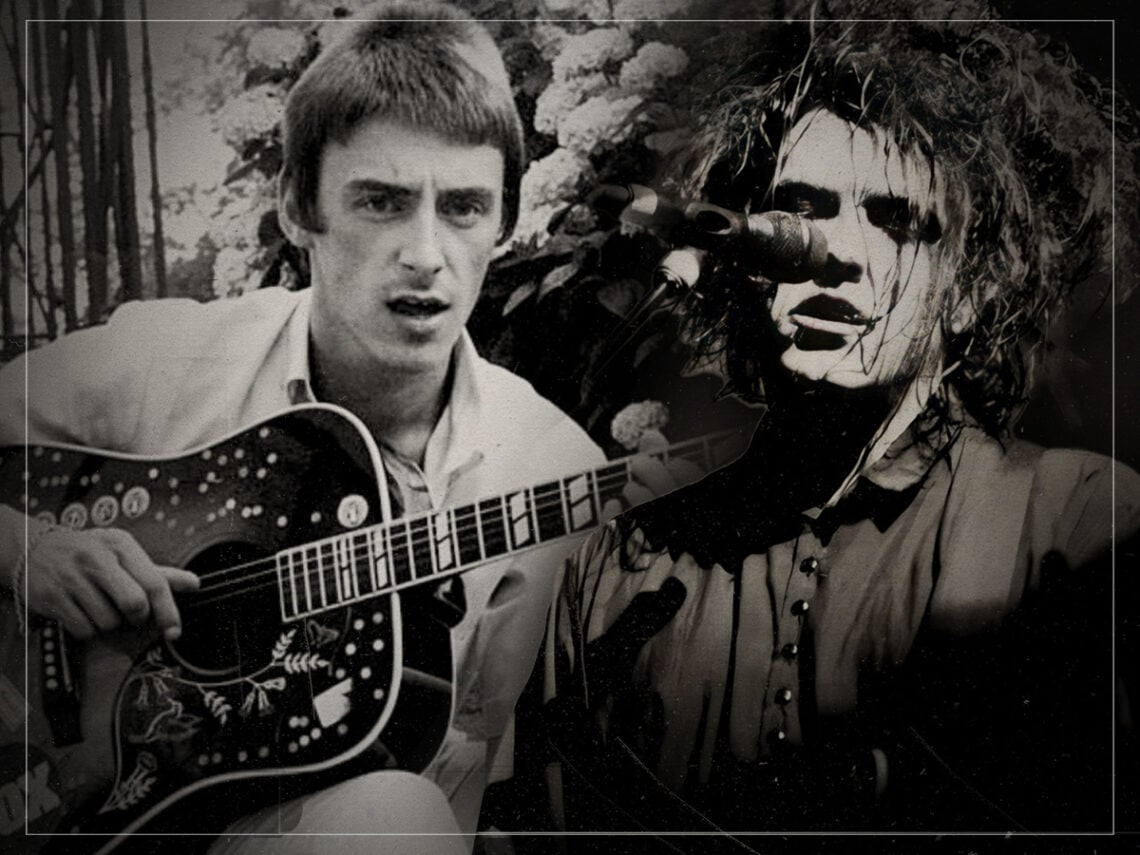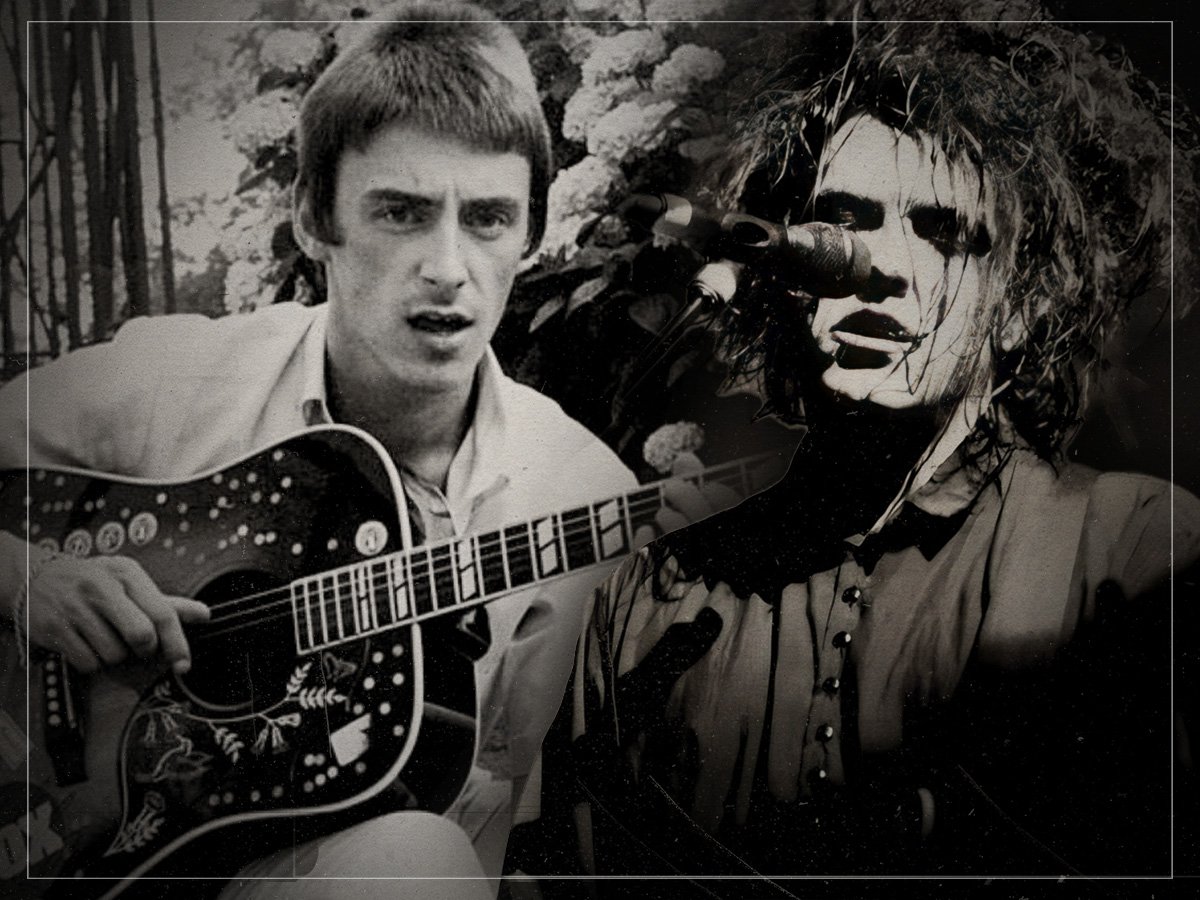
(Credits: Far Out / Alamy)
Fri 24 October 2025 16:00, UK
In 1979, The Cure marked their official arrival with Three Imaginary Boys.
A record that Robert Smith would look back on without any semblance of fondness, Three Imaginary Boys came at the tail-end of a movement that proved to be no picnic for rock bands looking for a darker, more gothic outlook on creative expression. In the same pool were bands like The Jam, who just so happened to be in the same studio when The Cure were working on their ill-fated debut.
Smith would later describe the record with words like “superficial” and “lightweight”. All of this probably came as a result of Smith feeling rushed with the production and sometimes writing lyrics on the spot. But most of his qualms about it only became fully realised after the fact. He still tried to make it work, even under pressure, knowing that his vision would eventually become one that defined an entire genre.
Sometimes, he even made use of the shared studio space, dipping out to borrow equipment from The Jam. “We used to sneak in at night and use their equipment,” Smith later told Rolling Stone. This fact probably went unnoticed by Paul Weller, who, as we know, had some fairly vicious remarks about his fellow rock peer a couple of years back. But while the details of their obvious feud aren’t clear, some historical moments deserve paying attention to.
Punk, for instance, is a movement that Smith once said couldn’t be seen as political. He went so far as to say people would be “stupid” to listen to someone like Weller, softening the blow by adding that they’d also be “particularly stupid” to “believe someone like me”. Singling out Weller probably didn’t do him any favours when it came to Weller’s future attack, but it certainly felt more like a criticism of audiences putting their idols on pedestals when the crux of the music was for artistic expression, not politics.
In 2022, Weller made his passionate hatred for The Cure frontman crystal clear. There seems to be absolutely no common ground with this pair, except maybe the fact that they were discovered by the same person. That said, interviews and comments elsewhere show that perhaps this isn’t the only thing they have in common after all. On two separate occasions, both Weller and Smith have praised the late legend David Bowie, singling out his masterpiece Low as the “greatest” record he ever made.
“David Bowie’s Low is the greatest record ever made,” Smith told NME in 2013. “I bought it on cassette, and the same day I went to a garden centre with my mum. I’d ordered it from the local record shop, and Paul, who was in the band and is my brother-in-law, had dropped it through the letterbox. It’s like one of those weird days.”
Elsewhere, Weller once told Mojo that he’s “a born-again Bowie freak” and that Low is “one of my favourite records”.
He added, “Whatever gripes I’ve had about Bowie in the past, Low’s been a constant since I bought it in 1977.”
It’s probably a far stretch to assume that the two of them could one day put aside their differences and rebuild based on their shared love for Low. But even for an unlikely alliance, it does say a lot about how their shared tastes shaped two distinctively different visions that still ended up in similar categories. Whatever the reason for Weller lashing out, he likely doesn’t realise just how much they’d probably get on without the lingering bad blood casting tension where there needn’t be any.
Related Topics
